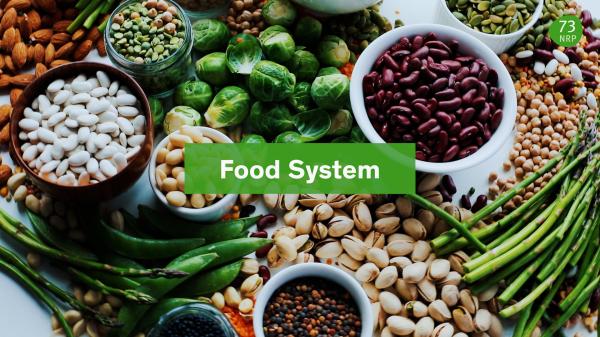Agriculture and Nutrition
Concepts such as “ecosystem services” showed that the agricultural sector also performs important functions outside the market. The National Research Programme 73 has now made it clear that deep-seated problems can only be resolved by a systemic "just transition".

Background
In today's food system, there are considerable deficits in terms of both environmental and social sustainability: in the global north our dietary habits leave an inappropriately large ecological footprint, while in the global south the social deficits of the system – from malnutrition to child labour to gender discrimination – are particularly visible.
Aim
In a collaborative effort encompassing several projects, the National Research Programme “Sustainable Economy” (NRP 73) identifies existing deficits and proposes strategies to eliminate them. The following projects are involved:
“Impacts of Swiss food consumption and trade”, under the direction of Prof. Dr.-Ing. Alexander Mathys
“Sustainable Trade Relations for Diversified Food Systems”, under the direction of Dr.iur. Elisabeth Bürgi Bonanomi
“Enhancing supply chain sustainability”, under the direction of Dr. Christian Schader
“Interaction of economy and ecology in Swiss farms”, under the direction of Dr. Thomas Nemecek
“Digital innovations for sustainable agriculture”, under the direction of Prof. Dr. Robert Finger
“Legal framework for a resource-efficient circular economy”, under the direction of Prof. Dr. Sebastian Heselhaus
Results
It became clear that while the hitherto dominant theoretical approaches such as “multifunctionality” and “ecosystem services” played an important role in putting the market’s problem-solving capacity into perspective, they were not systemically oriented enough to properly address the problems at hand. One example of such systemic approaches is the need for national and trade-policy measures to run simultaneously where agricultural policies are concerned; another is the need for animal- and plant-based foods to be subject to different policies for ecological reasons. The growing problem of food waste and the new technological potential created by digitalised agriculture also call for policy innovations that take account of the numerous interdependencies in global ecosystems. It is precisely in such areas that there are currently no binding rules at either national or international level that would facilitate a fairer and more environmentally friendly agricultural system. The concept of the “just transition”, which has so far been applied mainly outside the agricultural sector, provides a suitable theoretical framework for this.
Implication for research
The National Research Programme “Sustainable Economy” (NRP 73) has identified important theoretical guidelines enabling researchers in the numerous problem areas of today's agricultural and food systems to contribute to the necessary policy innovations. System thinking and distribution sensitivity will play a central role in this.
Implication for practice
The NRP 73 projects have already given rise to a large number of practice-oriented ideas for addressing existing problems in the agricultural sector, both in terms of regulatory intervention and by providing advice and awareness-raising measures. Thus, numerous suggestions are now available to the executive and legislative bodies of government.
Projects



 Impacts of Swiss food consumption and tradeProf. Dr.-Ing. Alexander Mathys
Impacts of Swiss food consumption and tradeProf. Dr.-Ing. Alexander Mathys



